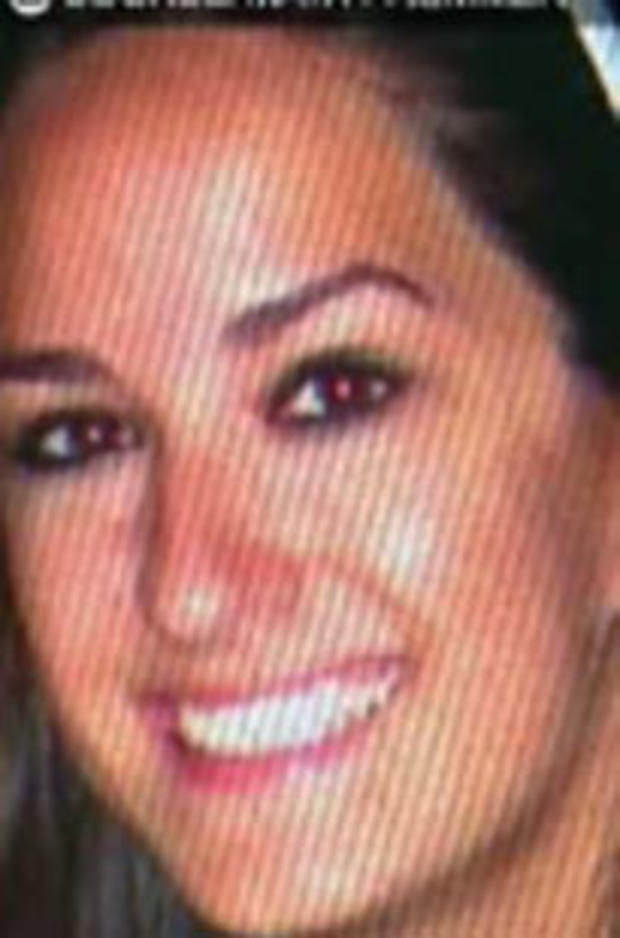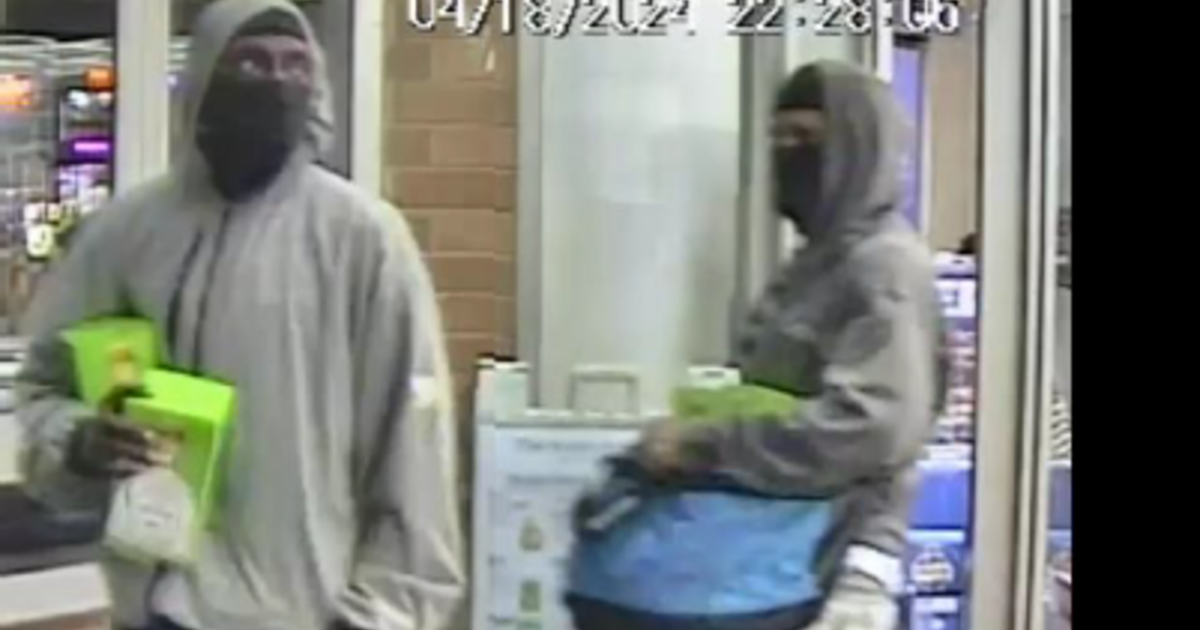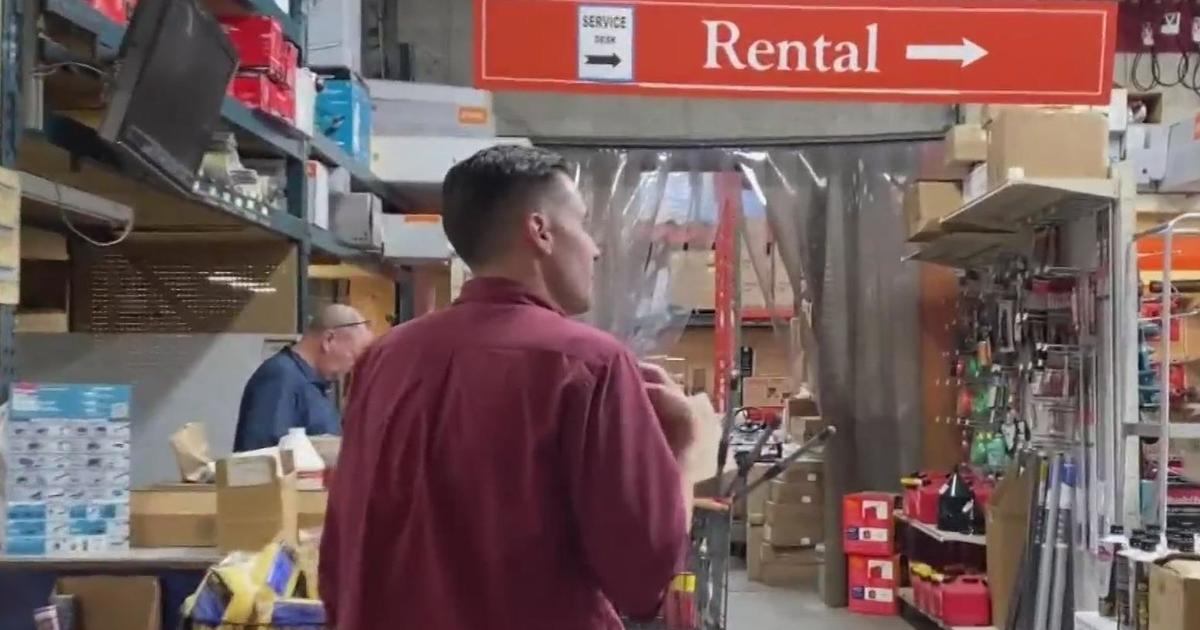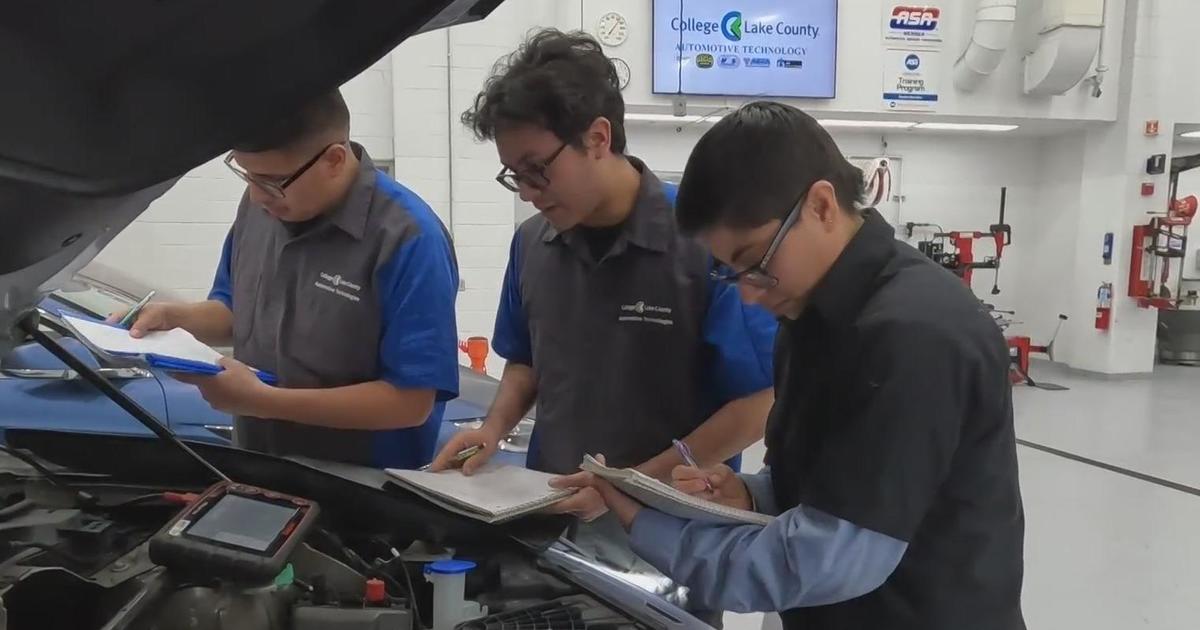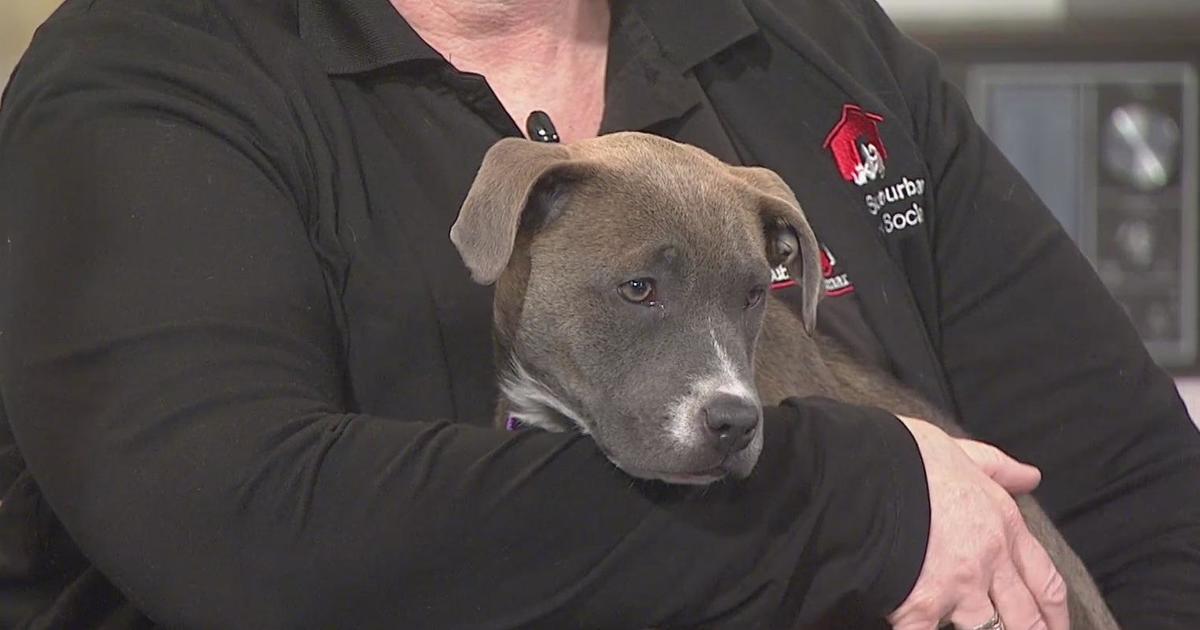Chicagoan Caught In Middle Of Japanese Earthquake
Updated 03/11/11 - 6:03 p.m.
CHICAGO (CBS) -- What was it like to be in the middle of the devastating 8.9-magnitude earthquake and tsunami in Japan?
Chicagoan Maya Frommer works in the financial services industry in Tokyo. She was on an elevated train heading to the airport when the quake struck.
As Frommer told her story by phone to CBS 2's Dorothy Tucker, there were more tremors.
"It's shaking again. We have another earthquake right now," Frommer said, describing the sensation. "It's just shaking again, the same as it was five minutes ago. It goes side-to-side, and everything that's kind of hanging, you can hear it moving.
"I don't know if I'm going to be able to get to sleep tonight," Frommer continued. "It's been a really nerve-wracking day."
After the earlier quake hit, Maya says passengers were forced to get off the train. That's when she saw an oil refinery burning.
"We see a big explosion," she said. "It looked like something out of (the action movie) 'Die Hard.'"
From his home in Chicago, Maya's father, Mike Frommer, and her stepmother, Susan Shure, read the chilling messages Maya posted to her Facebook page.
"It really is just the worst feeling because she's in a disaster, and all we can do is read her postings," Shure said.
President Barack Obama said the United States stands ready to help Japan in any way possible. The aircraft carrier USS George Washington, which is based at Yokosuka near Tokyo, was already on the scene Friday and Obama said the carrier USS Ronald Regan, which was en route to South Korea at the time, would be redirected to Japan.
CBS 2 Chief Correspondent Jay Levine reports that Obama said he was "heartbroken" by images of the aftermath in Japan.
The heaving flood waters swept away homes, boats, cars driving, commercial buildings and carried away ships and smaller vessels. Some vessels were pounded against each other, while others were left stranded in an inland sea or driven into obstacles.
"The images of destruction and flooding coming out of Japan are simply heartbreaking. Japan is, of course, one of our strongest and closest allies," Obama said. "This morning I spoke with Prime Minister [Naoto] Kan. On behalf of the American people I conveyed our deepest condolences, especially to the victims and their families."
Hundreds of people were dead or missing in Japan after the quake and tsunami.
"The Japanese people are such close friends of ours and I have such a close, personal friendship and connection to the Japanese people, in part because I grew up in Hawaii where I was very familiar with Japanese culture," Obama said. "That this just makes our concerns that much more acute."
In the Chicago area, members of the Japanese-American community are anxiously waiting for word about their relatives in Japan.
As CBS 2's Susanna Song reports, some customers at the Japanese market Mitsuwa, at 100 E. Algonquin Rd. in Arlington Heights, were having trouble getting touch with anyone on the phone.
Masako Mayahara of Buffalo Grove was making calls to her circle of Japanese friends, making sure their relatives living in Japan are safe and unharmed.
"I can't sleep," Mayahara said. "Nothing like this ever happened."
Mayahara has also been searching for her own family. She moved here from Japan in 1997, but her brother and parents are still there, now devastated by the earthquake and tsunami.
LISTEN: Newsradio 780's Bernie Tafoya Reports
Podcast
LISTEN: Newsradio 780's Dave Berner Reports
Podcast
Mayahara watches the local Japanese TV station via satellite for the latest up-to-the-minute news, wondering about her parents.
At first, she thought they were sure to be safe because they life in the southern part of the country, far away from the epicenter of the earthquake. But now, she is hearing a tsunami could also hit the southern coastal towns.
"I wasn't worried at first, but now I'm hearing they're saying the tsunami is hitting the southern part, and I can't get to them," Mayahara said.
Shoko Johnson and her children came to Mitsuwa Friday morning to get her mind off worrying.
"My parents live on the island, on the seashore line with the Pacific Ocean, and my stepfather is a fisherman. I'm not sure what they're doing," Johnson said. "I've been checking with my parents and can't contact them."
Johnson said she thinks her parents have left the shore for the mountain. As for Mayahara, she finally received an e-mail from her brother saying their parents are fine.
With phone and Internet service damaged, modern communication has been little help to Miki Yonekura of Schaumburg, who is from the seaside community of Sendai.
"My brother, his house was almost facing to the beach, so hopefully (he was) not in the house when tsunami hit," Yonekura told CBS 2's Vince Gerasole.
Another brother was able to reach her by phone, saying their father – who was on a business trip -- is alive and well.
Miraculously, from the devastation in Sendai, some friends have been able to send out emails to say they are alive, but frightened.
Yonekura has organized an email chain with those able to communicate, and as soon as they have word about her mother and brother and another sister, they have agreed to write to her.
Yonekua and her husband and son moved here from New Orleans after surviving Hurricane Katrina.
Many Japanese Americans living in the Chicago area have been watching television and sending urgent e-mails, trying to find out if family and friends near the quake's epicenter are okay.
Kay Kawaguchi, the cultural and community affairs assistant at Chicago's Japanese American Service Committee, spent the day hoping, waiting for a response from five friends near Sendai.
"I just hope they're okay, but right now, I'm not sure because I didn't get enough information," Kawaguchi told CBS 2's Dana Kozlov.
Sachiyo Jacob's father lives in Tokyo. She finally got through to him by e-mail Friday afternoon to hear of a city now paralyzed by the destruction nearby.
"My dad is working in Tokyo," Jacob said. "He couldn't even go home because of the train is already, you know, everything is down."
The head of the Japanese American Service Committee said that, eventually, they hope to be able to forward aid donations to an agency focused on the victims in Japan. She said they also have Japanese speaking social workers for whoever might need trauma counseling or simply someone to talk to.
A large section of the Miyagi Province burned furiously, devastating a town of 70,000 people. As CBS 2's Kristyn Hartman reports, the disaster is especially harrowing for Chicagoans who have loved ones there.
Norio Tanabe translated an online Japanese headline for Hartman. It said "Kesennuma City is burning."
"Earthquake, tsunami, then fire. Three disasters in a day," says Tanabe, of Woodstock, who is still waiting to hear from relatives. "My concern is it's all gone."
He will be there soon to check in on the relief effort – just like he's traveled to other Asian countries to lend a hand. But will he go to his hometown?
"Actually, no, I don't want to, because I have good memories," he said.
